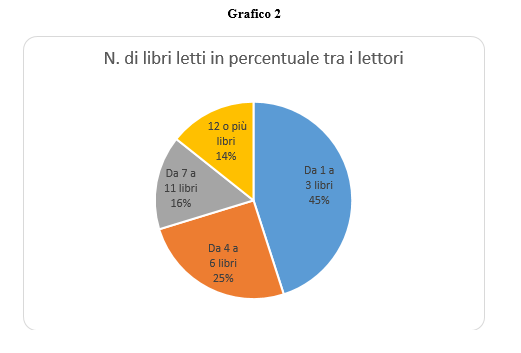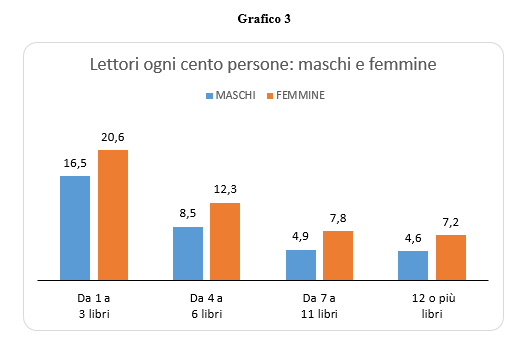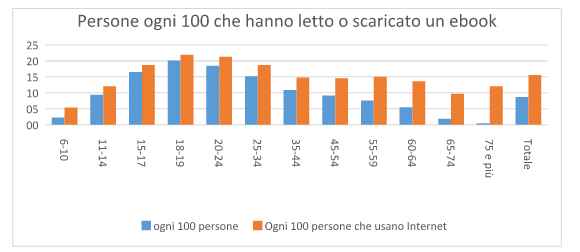Written on .
A majority of Americans are opposed to Donald Trump’s proposed Muslim ban, a new poll finds—but a majority of Republicans are with Trump. Overall, the CBS News poll finds 58 percent of people disagree with Trump that the U.S. should “temporarily ban Muslims from other countries from entering.” But:
There are sharp differences by political party. Just over half of Republicans responding -- 54 percent -- support such a ban, while most Democrats and independents do not.
Also:
Sixty-seven percent of Americans say the ban would go against the founding principles of this country - majorities across party lines agree on that. However, 53 percent of those who back banning Muslims from entering say such a ban would be in keeping with those principles.
Obviously a chunk of people who want to do something aren’t going to be able to admit to things that make it problematic. But personally, I want to know about the people who agree that banning a religious group from entering the country would go against our nation’s founding principles but still want to do it. That seems like a group ripe for further study.
Laura Clawson DailyKos
- ( f ) Recommend
- ( r ) Reply
- ( p ) Parent
- ( o ) Open/Close
- ( j ) Next Unread
- ( k ) Prev Unread
American politics consists of two parallel universes occupying the same space but never interacting with each other. One Democratic, where issues such as inequality, police abuse, gun violence, climate change, education and healthcare dominate the conversations while the other is Republican where Islamic terrorism, religion and anti-government conspiracy theories dominate the conversations. There is no middle ground for compromise on anything because there is no commonality.
The Chinese Exclusion Act of 1882 banned most immigration from China but in theory allowed immigration of businessmen, students and teachers, and diplomatic personnel, if they obtained a certification from the Chinese government, which due to the domestic political situation was hard to get (diplomats aside). And diplomats aside, the certifications weren’t always accepted by U.S. immigration authorities. Chinese already here who left the United States were not permitted to reenter. Chinese were permanently barred from U.S. citizenship.
The Immigration Act of 1924 was an improvement over the 1882 legislation for it did not single out any ethnic or national group by name. Instead, countries were given quotas based on the 1890 census, when the makeup of the United States was far more western European than in 1924. The law was intended to reduce immigration from southern and eastern Europe to a trickle and, as the quotas for those countries were a tiny fraction of the immigration right after World War I, the law was quite successful in keeping these “undesirables” from coming to America. After Hitler came to power, the Immigration Act trapped Jews within Europe while America closed its doors, which I’m sure didn’t bother the Ku Klux Klan sponsors of the 1924 Immigration Act one iota.
So — Trump has precedent, unfortunately.
Those were limited by country though, not religion. That’s the difference.
And actually, I don’t have much problem with country limits, assuming exceptions for refugee status and some family members. Those have a long, though not particularly stellar, history.
Limits by religion are an entirely different thing, and very problematic.
The goal of the 1924 immigration changes was to keep out Catholics, that is why the 1890 census was used. We have had ideological restrictions before (including ones about “good moral character” which were partly intended to keep out “the gays”).
I wrote a diary about about how Trump’s proposal is likely constitutional. The executive and legislature have a lot of latitude when it comes to the entry of alien visitors or immigrants into the US. They are not afforded the same equal rights protections that citizens and those already in the country are. I am also convinced the courts would be very reluctant to rule against a “war-time” ban which is justified as a temporary expedient that unfortunately inconveniences a broader population. Like most immigration issues, this cannot be settled solely in the courts, it’s a political problem and requires a political solution, namely making sure no republican gets near the oval office.
True but new is the stateless nature of the threat. And one thing we know about the conflict abroad - they're definitely killing people based on religion or religious sect. Banning a religion is wrong but denying the complexity of the religious problem isn't helpful either. Just think how hard it is to vett refugees without delving into the nuances of sectarian affiliations. One reason you get polls like this is the disbelief in Obama's "I've got this" attitude. At best, it's horrifically complicated and inexplicable to folks who aren't experts on the regions and religious sects.
Yeah Shia, Ismailis, Sufis, and many non-Salafi Sunnis are often targets of terrorism. At the same time, sectarian allegiances can tell you very little about what a person may choose to believe tomorrow or next month about what means are wrong to achieve whatever political end they have adopted.
The misunderstandings are no different from eyeing all Catholics with suspicion because the IRA was a terrorist organization that killed hundreds of innocents. Those who revel in prejudice will jump at the opportunity to exercise it.
What is lost in all this are the broader political forces (repression over decades by authoritarian leaders supported by the US) that are fueling extremists/terrorists who use religion as a tool to gather followers.
Donald Trump IS what is wrong with American politics, especially Republican Party politics. Trump is a Class-A buffoon with lots of money. If he was not a billionaire he would most likely be a just another real estate developer in Queens like his father was. But since we live in a plutocracy, the more money you have the more political power you get.
BUt let us all remember….”Money Can’t Buy Me Love”
Think isn’t as much about Trump as it is about the voters that flock to him and why. He could do all kinds of publicity stunts to get attention, but he has chosen a racist, xenophobic track. He’s many things, but not a fool. After all, he spent a million doing campaign research before he started running. And the first thing out of his mouth was a fear mongering rant about murdering, raping, Mexican immigrants streaming across the border.
For decades the GOP has been using dog whistles and othering to hold political power. Now all those seeds have born poisonous fruit, especially since the election of a black man to the White House. Look at the rise of the Tea Party and the extreme right that is inhabiting Congress. Look at how many states are controlled by Republicans, in spite of the GOP’s abysmal economic record. Fear is ruling logic and that is never a good thing. Trump has the support he does because he is saying what his supporters believe. A sole focus on Trump is like ignoring the tip of the iceberg right before it tears a gaping hole through your ship.
“...personally, I want to know about the people who agree that banning a religious group from entering the country would go against our nation’s founding principles but still want to do it. That seems like a group ripe for further study.”
I assume there’s substantial overlap with people who insist ‘America is a Christian nation’ despite what the Constitution says about that. (Me making a comment on DKos does not, of course, constitute further study.)
it could also simply mean “yes thats against the founding principles and yes, I am fine with it because I dont like the founding principles in the first place.”
Or it reflects the more seductive attitude that “Yes I care about the founding principles, but unfortunately right now we have to bend the rules a little, because ISIS is so evil. Hey, I have a family to protect.”
Someday in the future Trump and the psycho-GOP will not be sucking up all the oxygen…...Then Obama Hillary Sanders Bill can start ripping them apart.
Kareem penned one of the most accurate definitions of Trump that I have read so far. Trump is indeed a Political Terrorist. While some conservatives lump all Muslims’ into the radical category they make no such pronouncements against some Christian radicals who are themselves terrorist.
The majority of one of our two main parties thinks it’s a good idea to ban Muslims from entering the United States. By 16 points.
I think you’re burying the lede.
It is terrifying how far the Republicans have fallen. These people control Congress! These 54% of Republicans more or less decide what elected GOP members do and don’t do.
Would it be surprising to find Republican voter support for Muslim internment camps in the double-digits? At this point, I’d expect it.
And seemingly 99% of that Republican majority for an anti-Muslim religious entry test have glommed on to Carter’s restriction on Iranians.
I wonder if they actually don’t see the difference between restricting citizens of a nation-state that issues passports, and restricting members of a major world religion?
Or is it just some sort of split-brain thing where they rationally know there’s a difference, but it’s so much fun to just go with the non-rational thing that they’ll live in their alternate universe for a little longer?
Fear makes thinking go weird. Time helps.
Devil’s Advocate for Trump
Many Americans are dubious about all religious groups most of whom have an ugly history. If a group of terrorists is associated with a certain religion and there is no way to tell the good from the bad, then excluding them all is rational. Being naive about religious fanatics is foolish.
The history of America is anti-religious especially as to minority religions such as Catholics and Mormons. Many Americans opposed organized religions, i.e., Jefferson and Twain.
There comes a point when it's clear racism is just another wavelength on the spectrum of stupid. Really, ban all Muslims? American citizens? Students? All of them? And how would that even work, administratively? Already I hear that ignorant horse-voice braying “It would work beautifully, I'd create a beautiful, exquisite system in one of my tall, tall buildings."
Obama-era right wing rhetoric either laid the groundwork for such anti-democratic sentiments or revealed its existence. Such rhetoric also includes a strong strain of rejecting the legitimacy of Obama's election and one can speculate that a large percentage of conservatives might even support a coup at some future point, if it was well demagogued.
yesterday michael savage was asked by a caller why he wasn’t all out for trump and savage said he fully supports trump but wasn’t working for him and he wasn’t going to use all three hours of his show to push trump- like another radio guy he wouldn’t name….
trump is another in a long line of parasites on limbaugh and the talk radio reality. or maybe he’s paying limbaugh now. i can see them playing golf and limbaugh ends up with a scorecard with a swiss bank account number on it.
if liberals want to be done with this crap they need to force media to make the limbaugh trump connection.
trump has taken over for fox as the visual icing on the invisible lie turd pie of talk radio. until liberals throw flour and sparkles on that invisible pie, media and pols are going to keep using it to enable their work for the oligarchs, legitimizing fox and trump with a highly exaggerated artificially amplified ‘populism’ based on lies and distortions.
more people are dying and are being attacked for their looks and beliefs and the hate that drives a lot of it comes from radio stations that keep getting a free speech free ride.
americans need to include those radio stations and the 90 universities that keep them going in their protests.
Sixty-seven percent of Americans say the ban would go against the founding principles of this country, suggesting that sixty-seven percent of Americans at least have a clue about those founding principles.
I find that encouraging.
58% oppose it, but 67% think it goes against our founding principles, meaning 9% think it goes against our founding principles, but we should do it anyway.
Pathetic.
As my dad always said, “That’s why they make different kinds of ice cream.”
It doesn't take a majority to create crazy hate fueled legislation.
Think the majority of Americans find head lice less disgusting than Trump. But that doesn’t change the fact that those who support him and his rhetoric are doing damage. Muslim American children are being beaten up, physically and verbally, by their peers at school.
This Is What It's Like to Be a Muslim Schoolkid in America Right Nowhttp://www.motherjones.com/politics/2015/12/muslim-kids-bullying-schools-teachers-islamophobia
People who may or may not be Muslim are being spat upon and cursed at for how they look.
“Today. On a crowded bus. On Michigan Avenue. On my way home from a great job in a city in a diverse country that I was born in.
A man screamed at me. Called me a sand ni**er. Told me I was the problem. That I need to get the fuck out of his country.
I may have been wearing my scarf higher on my head than usual because it was cold out. I may have somehow looked suspicious listening to Spotify. I am half Iranian, so maybe it was my skin or my eyes.
But 5 minutes of this at least went on with no one doing anything. Me telling him calmly to back off. Me telling him I would call the cops and me trying to get my gloves off to dial.
Then this man spits at me. A man in a suit and tie. Like anyone else I'd see. He spits at me and looks at me with these regular eyes now filled with anger and tells me to get the fuck off the bus, do what I'm told, because this isn't my country. This isn't my place.
That's when I screamed at the top of my lungs for him to back off. That's when people decided to maybe help and tell him to stop. That got the attention of the bus driver to kick him out.
I'm home now in my nice apartment in a nice part of Chicago with my fiancé and my cat. Sitting in a room looking out at the lights of other apartments. Wondering how many others out there got screamed at and told today this isn't their country, that they're worthless somehow, that they don't matter. How many?
My father was in the World Trade Center on 9/11 and survived. Days and weeks and years after that horrible day, I have been told somehow me or my mother's family are the cause, that we are evil and going to Hell. That Iranians, that Middle Eastern people, that Muslims are less than human.
I am a mixture like so many in this country today.
I was born in Boston, Massachusetts. It's one of the most patriotic cities in America. My ancestor Hugh Drury is buried in the oldest graveyard in Boston, and he helped contribute to the building blocks of what would become the United States of America.
And yes I'm also Iranian. My mother's family came here to seek incredible opportunities and they found them. They've become doctors and entrepreneurs and athletes and writers and singers.
I have family who are Muslim. have family who are Catholic. I have family who enjoy laughing and talking and dancing and drinking till they're silly.
And I am American. and this is my country. I do belong here. My roots are planted here.
I'm here and I belong. I won't get off the bus.”
https://www.facebook.com/sharareh.drury/posts/10153574865727034?fref=nf&pnref=story
We need to speak up and stand up for our fellow Americans and fellow human beings.
Republicans will just have to die off through old age.
They Will Not And Cannot Change.
They Will Also Find A Way to Rationalize and Justified Their Narrowness.
Republicans will just have to die off through old age.
They Will Not And Cannot Change.
They Will Also Find A Way to Rationalize and Justified Their Narrowness.






